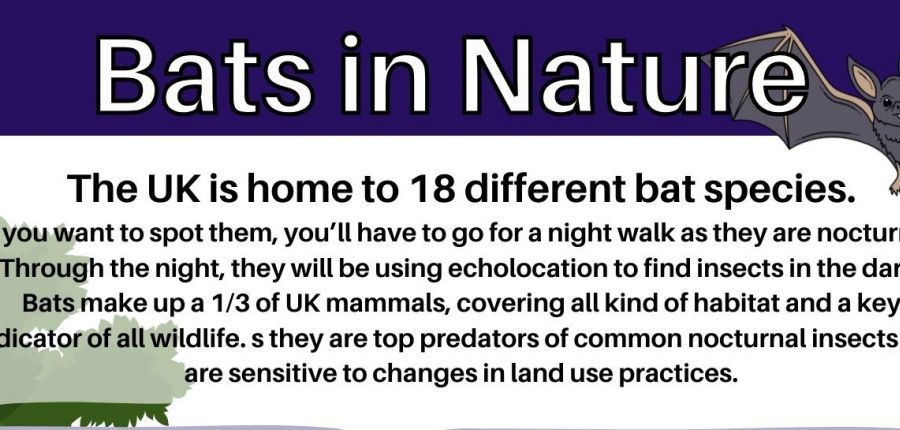Bats in Bristol
Posted By: Category: Wildlife.jpg)
.jpg)
Download this guide as a pdf!
The UK is home to 18 different bat species.
If you want to spot them, you’ll have to go for a night walk as they are nocturnal. Through the night, they will be using echolocation to find insects in the dark. Bats make up a 1/3 of UK mammals, covering all kind of habitat and a key indicator of all wildlife. s they are top predators of common nocturnal insects and are sensitive to changes in land use practices.
Natural Insect Control
All bats in the UK are insectivores, meaning they only eat insects. Having trees, hedgerows and woods helps bats get around and a great way to attract them to your area.
‘Chiropterophily’
Around the world, over 500 species of plant rely on bats to pollinate the. Using their long tongues, they can reach into long stems to collect the important nectar.
They also spread seeds of trees. By consuming their fruit, they spread seeds in their excrement - natural fertiliser!
How you can help!
By attracting more insects to your gardens, you can help support Bristol’s bats
- Add a wildlife-friendly ponds in our gardens, allotments or green spaces. Also it can be a source of water for hunting bats.
- Create green spaces with hedgerows and trees to help them get to your area and create roosting spots.
- Pollinating plants will increase biodiversity in your area - filling the garden with wildflowers or just a window box will help!
- Reduce artifical lights at high bat-traffic times (dusk onward)
- A compost bin will attract food for bats
- Avoid letting cats out at dusk when bats are most active
- Get a bat boxes, creating safe spots to roost
- Be informed before you do work on your house, especially the roof
Why are trees important for bats?
- Protection from bad weather
- Roosting behind loose bark and in holes
- Perching on branches to fees
- Help with navigation
- Many bats hunt through woodland the edges of trees
Bats in BS3
There are 6 types of bat spotted in BS3
Common Pipistrelles - Most spotted in BS3. UK’s smallest bat - weight of £1 coin!
Soprano Pipistrelles - Species separated in 1999. Size of a matchbox!
Noctules - Largest bat found in the UK, but still only palm size
Lesser Horseshoe - Can live up to 30 years old and can have up to 1 pup a year
Bechstein's Bat - Rare - only found in ancient woodlands in the south of England
Serotine - First to emerge at dusk. Loves snacking on large beetles
If you and your community are interested in learning more and help support these amazing creature, there are local groups you can become a member with!
Avon Bat Group - Local Bat events and talks. Volunteer with them! Get a Bat detector to find out what bats you get in your garden!
Bat Conservation Trust - Lots of great information to learn more! Volunteer or Donate.
National Bat Helpline on 0845 1300 228







